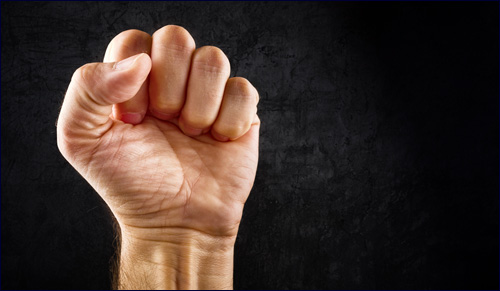 Iran’s Attack on Israel
Iran’s Attack on Israel


3 min read
It takes a lot more than posting something on Twitter.
A friend of one of my children was in class at a local community college. The professor had an important question for the students. "Are you a social justice warrior?"
Now of course in order to answer this question it was necessary to establish some criteria. How do I know if I qualify as a social justice warrior?
The professor enlightened the class. "If there is a cause you believe in and you went to its Facebook page and pressed like, you can call yourself a social justice warrior."
Wow! I didn't have to trudge miles in the snow to get to school (although I did stand at a bus stop in the snow) but I do think that the expectations of social activism in the past were a little higher, the criterion more demanding.
I think we need to put in a more meaningful effort on behalf of the needy and disadvantaged than post slogans on Facebook and Twitter while sitting in the comfort of your home.
In Jewish understanding there is an important idea known as mesiras nefesh, self-sacrifice, putting our lives on the line for something bigger than ourselves, usually involving the future of the Jewish people and our relationship with the Almighty.
When Yocheved and Miriam ignored Pharaoh’s evil decree and risked their lives to save the Jewish babies, they were moser nefesh, they were willing to put everything on the line for the cause. When our ancestors allowed themselves to be killed rather than convert or worship idols, we say they were moser nefesh. When the small band of Maccabees rose up against the whole Syrian-Greek army, they were moser nefesh. When Rabbi Akiva risked his life to teach Torah despite the Roman prohibition, he was moser nefesh.
In more contemporary times, when Jews in the Soviet Union risked their jobs and going to prison by applying to emigrate to Israel, they were moser nefesh. When they learned Torah under the condemning noses of KGB at risk of physical violence, they were moser nefesh. When Natan Sharansky refused to leave his Russian prison cell without his book of Psalms, he was moser nefesh. And when women in the former Soviet Union travel three hours each way by bus to find a mikvah cut in the ice in the middle of a frigid Russian winter, they are most certainly moser nefesh.
Perhaps one could argue that on certain college campuses today standing up for Israel requires a degree of self-sacrifice.
But pushing a button on your phone or computer? That’s a mockery of what it means to be a real social justice warrior (never mind the poor education that the professor is giving her students).
Everyone wants the easy way out. If we can feel that we have added meaning to our live with a mere "like" on Facebook, we'll take it. We can reassure ourselves that we're good people, social justice warriors in fact!
But we know better. Somewhere inside our children they will know that they haven't really put themselves on the line for anything or anyone.
And that knowledge will eventually eat away at them.
I’m sure this professor thought she was being encouraging and supportive, but I think that giving her students genuine hands-on options - some community service, some real opportunities for empathy and giving – would have been so much better.
Our children are idealistic. They want to grow, they want to give, they want to make a difference. Let's not sell them short. Let's help them learn what mesiras nefesh really is.
